Ireland Budget 2013:- property tax, excise duty increases, motor & carbon tax hikes as well
The Minister for Finance Michael Noonan poses with Budget 2013 ahead of his speech in the Dail this afternoon.
A property tax, reduced child benefit payments, increased excise duties on cigarettes and alcohol, hikes to the student contribution charge and changes to the PRSI system are among the key measures outlined in Budget 2013.
The Government has detailed how it plans to achieve an adjustment of €3.5 billion next year, with Minister for Finance Michael Noonan outlining taxation measures expected to generate €1.25 billion and Minister for Public Expenditure Brendan Howlin outlining expenditure cuts of €2.25 billion.
Main points of Budget 2013
As he delivered Ireland’s sixth austerity budget in five years, Mr Noonan said it was “a good day for taking stock of where we are” as a country.
He said the State’s general deficit would stand at 8.2 per cent at the end of the year, inside the 8.6 per cent bailout target. This would fall to 7.5 per cent in 2013, 5.1 per cent in 2014 and 2.9 per cent in 2015. The figures, he said, were based on economic growth of 1.5 per cent next year, 2.5 per cent in 2014 and 2.9 per cent in 2015.
The property tax, Mr Noonan said, is to be levied at a rate of 0.18 per cent on properties worth up to €1 million and 0.25 per cent on properties valued at more than that. He said certain properties would be exempt from assessment for the tax, in a similar way to exemptions from the €100 Household Charge. There will also be a system of voluntary deferral arrangements to assist those facing difficult circumstances.
Excise duty is to increase by 10 cent on pints of beer and cider and measures of spirits, and by €1 on a 750ml bottle of wine from midnight. The price of a pack of cigarettes is to go up by 10 cent from midnight and the price of a 50g pouch of tobacco is to rise by 50 cent.
Motor tax is to rise by between €10 and €126, with a carbon tax on peat and coal to be introduced on a phased basis.
Spending in the areas of Social Welfare and Health will increase by €150 million each, to €20.2 billion and €13.6 billion respectively.
Mr Howlin said the Government had decided that reducing the primary weekly rates of social welfare would have a detrimental impact on domestic demand.
However, he said child benefit would be cut by €10 per month, saving €136 million next year, and jobseekers benefit would only be available for nine months, rather than 12 months, which would save €33 million in 2013 and €82 million in a full year.
Mr Howlin announced changes to the telephone element of the household benefits package, to save €60 million, and the electricity allowance, to save €20 million.
Prescription charges for medical card holders are being tripled from €0.50 to €1.50 with the monthly cap for a family rising from €10 to €19.50.
The respite care grant, which is made to carers on an annual basis, is to be cut by €325 to €1,375 per annum.
In health, access to medical cards for over-70s is being restricted with individuals with an income of €600-700 per week (€1,200-1,400 for a couple) now qualifying for a GP-only card rather than the full card.
Professional fees for GPs and pharmacists are being cut again, in a move which will save €70 million.
The €2,250 third level student contribution charge is to increase by €250 in each of the next three years.
The reduced rate of USC for those over 70 with an income in excess of €60,000 will be discontinued at the end of the year and they will pay the standard rate.
Mr Noonan announced the abolition of the weekly PRSI allowance for workers and increased the minimum level of annual contribution from the self-employed from €253 to €500. Income tax rates have been left unchanged.
He said he was increasing the DIRT tax on deposits by 3 per cent to 33 per cent, decreasing the threshold at which Capital Acquisitions Tax applies by 10 per cent and increasing the rates of Capital Acquisitions Tax and Capital Gains Tax by 3 per cent to 33 per cent from midnight tonight.
“Today, on Budget Day, the Government recommits itself to this task, and political friends and foes alike should be under no illusion; this Government will not resile from the task in hand,” Mr Noonan said. “We will not dither or procrastinate but will drive forward to lead this country out of the despair and despondency and lack of self worth in which we found ourselves in March 2011.”
The State now had the basis of a renewed economy that will lead to greater employment, he said.
In order to support small businesses in this new economy, Mr Noonan said he was reforming the three year corporation tax relief for start up companies to allow unused credits to be carried forward.
He is also changing the R&D tax credit by doubling the initial spend eligible for the credit from €100,000 to €200,000 and extending the foreign earnings deduction for work related travel to certain countries beyond the BRICS, to support exports.
The VAT rate for the tourist industry will continue at 9 per cent, as opposed to 13.5 per cent, in 2013, a rebate on fuel will be available to hauliers from next July, and a range of support funds are being developed by the National Pension Reserve Fund to provide equity, financing and restructuring options.
The rate of corporation tax is to be maintained at the current level. The Government is providing Enterprise Ireland with an allocation of €139 million to support indigenous Irish exporters in 2013. A new ten-year €175 million Venture Capital Fund is being rolled out to fund new and expanding Irish companies.
Mr Howlin concluded by saying that when he took office last year, he “could not be certain that we would make it through this crisis”.
“I no longer hold this fear,” he said. “What the people of Ireland have endured has been tough, almost without precedent in the developed world.
“That we will come through it, and we will, is a significant shared achievement. In time, future generations will be proud that we, as a people, tackled this crisis head on. There remain difficult challenges ahead of us but Ireland and her people will prosper again.”
Key Measures- Budget 2013:
- Unvouched expenses for TDs abolished
- Third-level registration fees to rise
- Child benefit cut by €10 per month
- Expenditure adjustments of €2.25bn
- Capital Acquisitions Tax threshold falls by 10 per cent.
- Carbon tax extended to solid fuels
- Corporation tax remains unchanged
- DIRT increases by 3% to 33%
- Motor tax to rise from January 1st
- Excise duty on tobacco to increase
- €1 duty increase on wine
- 10 cent rise on spirits, beer and cider
- Property tax of 0.18% on homes worth less than €1m and 0.25% over €1m
- Homes bought in 2013 exempt from property tax
- Film tax relief extended to 2020
- Tourism 9% VAT rate to remain for 2013
- Farmers to get extended rate of stock relief
- Diesel rebate for hauliers from July
- R&D tax credits amended to encourage innovation
- Tax reform plan for SMEs
Budget rise in prescription fees could increase Irish health care costs


The Irish Pharmacy Union has reacted angrily to the announcement to treble the cost of prescription fees for patients and also to cut the professional fees to community pharmacists in the Budget.
The IPU said that the decision to treble the Prescription Levy for medicines from 50c to €1.50 in Budget 2013 could result in patients being hospitalised due to not getting the treatment that they need.
IPU President, Rory O’Donnell, said: “We understand the difficult budgetary situation that the Government is faced with, but increasing the levy could force sick people to go without medicine that they need. Such a move may also result in people having to be hospitalised when this could have been avoided – resulting in higher healthcare costs for the Government”.
The IPU has again called for patients in residential care, with intellectual disabilities, homeless patients and patients receiving treatment under the Methadone Treatment Scheme to be exempt from the levy.
The IPU is also “extremely surprised” at the decision to further reduce professional fees to pharmacists.
Mr O’Donnell said: “The decision to introduce the third cut in three years is disproportionate and particularly unfair on healthcare professionals who have contributed nearly €450m in savings to the Exchequer in the last three years and when 75% of the health budget is protected from change.”
Over 100 Garda stations to close in 2013
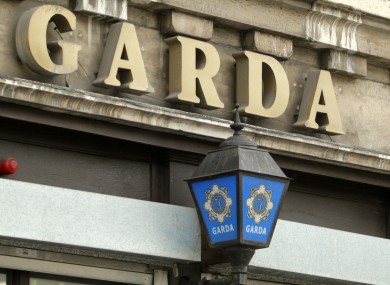

Some 100 Garda stations are to close as part of Garda “consolidation” process, with the opening hours of six stations in Cork city to be reduced and the amalgamation of 28 Garda districts into 14.
Minister for Justice Alan Shatter announced the measures as part of the Annual Policing Plan for 2013 before the Houses of the Oireachtas this afternoon.
Every year, the Garda Commissioner must submit to the Minister a policing plan setting out the proposed arrangements for policing the State for the following year.
In addition to the closure of part-time small garda stations, two large stations in Dublin are to be closed.
These are Stepaside in South Dublin which has 34 Garda members and Kill O’ the Grange in Dun Laoghaire which has 28 Garda members.
These members will be primarily allocated to Dundrum and Dun Laoghaire stations.
Speaking at Garda Headquarters today the Garda Commissioner Martin Callinan said that these strategic reforms will “enhance service delivery, increase efficiency and streamline practices within the organisation”.
It is anticipated that most of the stations will be closed in the first six months of 2013.
Following the proposed station consolidation next year, there will be 564 garda stations in the State.
Other measures announced include a sum of €5m being made available for the purchase and fit-out of new Garda vehicles in 2013 and legislation for a DNA database will be the enacted.
Irish catholic bishops respond to abortion report
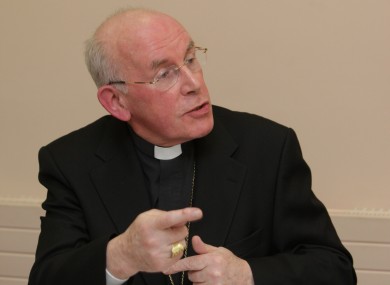
CARDINAL SEÁN BRADY, head of the Catholic Church in Ireland left picture and the Bishop of Kilmore Leo O’Reilly on the right.
Ireland’s Catholic bishops have criticised the Government for not asking the Expert Group on Abortion to consider the option of holding a referendum to reverse the 1992 Supreme Court judgment in the X Case.
They said the more recent judgement of the European Court of Human Rights in the A, B, and C cases permits such an option, but is not included in last week’s report.
Last night Minister for Health James Reilly reiterated the Government’s determination to bring legal clarity to the Supreme Court judgment in the X Case.
He denied this meant introducing abortion on demand.
In its initial response to the expert group report, the Irish Catholic Bishop’s Conference also said clearer guidelines within the current legislative framework may offer a way forward in the controversy.
Speaking on RTÉ’s Morning Ireland, Bishop of Kilmore Leo O’Reilly said the country’s bishops believed the expert group’s report on abortion was flawed.
He said legislation for abortion is not acceptable, and the expert group did not consider the whole range of options available.
“Three of the four proposals by the expert group included abortion. And that’s not something that’s acceptable in catholic teaching as everybody knows. The second thing is they don’t seem to have considered the whole range of options available,” he said.
Yesterday, five bishops joined a protest outside Leinster House demanding that Fine Gael stick to its promise not to legalise abortion.
Several thousand people attended the demonstration.
New pill to stop Alzheimer's in its tracks to go on trial in 2013

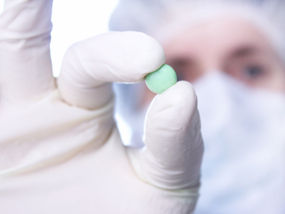
A new once a day pill that scientists hope could stop Alzheimer’s disease in its tracks goes on trial next year.
A small number of patients with mild-to-moderate Alzheimer’s could get access to the drug, known only as MK-8931, when the trial starts in the new year.
Should it prove effective, hundreds of thousands of sufferers in this country could potentially benefit from it in just a few years, experts have suggested.
Early tests indicate that the drug could be remarkably effective at halting the biochemical process, known as the amyloid cascade, that causes the disease.
Alzheimer’s results from brain cells dying off, linked to the build-up of structures between cells called amyloid plaques.
Pharmaceutical firms have had some success with drugs that clear these plaques. One, called solanezumab, has been shown to slow mental decline in people with a mild-to-moderate stage of the disease by a third.
Results
However, results were less positive than hoped, and researchers are increasingly convinced that the best way to attack Alzheimer’s is before the plaques form in large numbers.
They are looking at agents which tackle the key ingredient of the plaques, a protein called beta amyloid.
In a pilot study of 200 healthy volunteers, the drugs company MSD showed that MK-8931 reduced levels of beta amyloid in spinal fluid by 92pc. Results were presented to the American Academy of Neurology earlier in the year.
MSD is rolling out the study to 1,700 people with mild-to-moderate Alzheimer’s worldwide. Half will be given the drug and half a placebo, and researchers will measure rates of cognitive decline.
Dr Richard Perry, a consultant neurologist at Imperial College Healthcare NHS Trust in London, said: “It’s about getting in early, so that if less amyloid is produced, less plaques will come together.
“From what I have seen, this drug looks encouraging in terms of reducing the level of abnormal beta-amyloid.”
The researchers are not expecting the pill to improve the abilities of sufferers. Most experts think there is no way of reversing Alzheimer’s damage.
Wild birds line their nests with cigarette butts to repel pests, scientists claim
Birds are lining their nests with cigarette butts to repel pests and keep themselves warm, according to research.
Wild birds have long protected their nests from mite invasion by importing chemical-emitting plants.
But now birds living in cities seem to have adapted similar behaviour, filling their nests with up to 48 cigarette buts to make use of the repellent properties of tobacco.
The nicotine and other chemicals in discarded filters act as a natural pesticide that repels parasitic mites. At the same time, the cellulose butts provide useful nest insulation.
Scientists in Mexico City studied nests of house sparrows and house finches that each contained, on average, about 10 used cigarette butts.
Birds who stored larger numbers of butts saw their nests significantly less infested by mites.
To test the parasite-repelling effect, the researchers attached cellulose fibres from smoked and non-smoked filters to thermal traps placed in nests.
The battery-operated traps attract mites by generating heat. Fewer parasites were drawn to traps laced with nicotine-laden smoked butts.
Dr Constantino Macias Garcia, from the National Autonomous University of Mexico, and his team wrote in the Royal Society journal Biology Letters: “We provide evidence that urban birds incorporate cellulose from smoked cigarette butts into the nest and that this behaviour entails a reduction in the number of nest-dwelling ectoparasites.
“It appears that this effect may be due to the fact that mites are repelled by nicotine, perhaps in conjunction with other substances, because thermal traps laced with cellulose from smoked butts attracted fewer ectoparasites than traps laced with non-smoked cellulose.
“This novel behaviour observed in urban birds fulfils one of the three conditions necessary to be regarded as self-medication: it is detrimental to parasites.”
Nicotine is a natural defence chemical used by the tobacco plant to ward off plant-eating insects, the researchers pointed out.
It had been used to protect crops from pests and also to control parasites in poultry.
The scientists said it was possible the anti-mite nest protection was a happy coincidence. Birds might only be lining their nests with discarded butts because they provide good insulation.
Further studies could reveal if this is the case by offering the birds a choice of smoked and non-smoked butts. Either would do for insulation, but only filters from smoked cigarettes can effectively repel mites.
“Birds could distinguish smoked and non-smoked butts from their scent, just as some birds that use the chemical compounds of plants as defence against parasites appear to rely on olfaction to collect those with effective chemicals,” the scientists wrote.
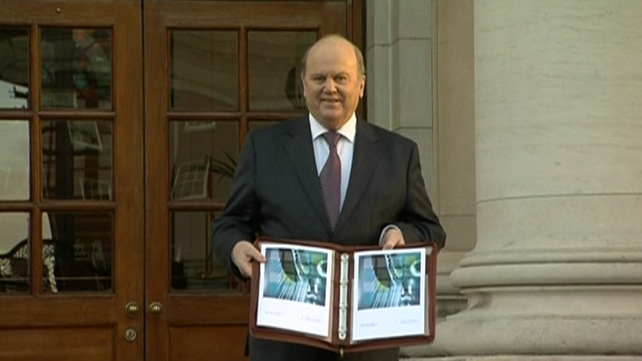
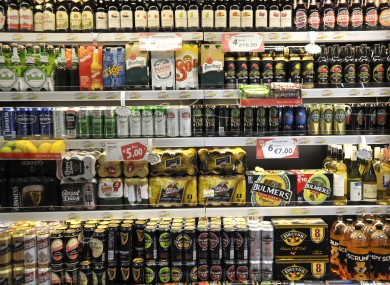


No comments:
Post a Comment